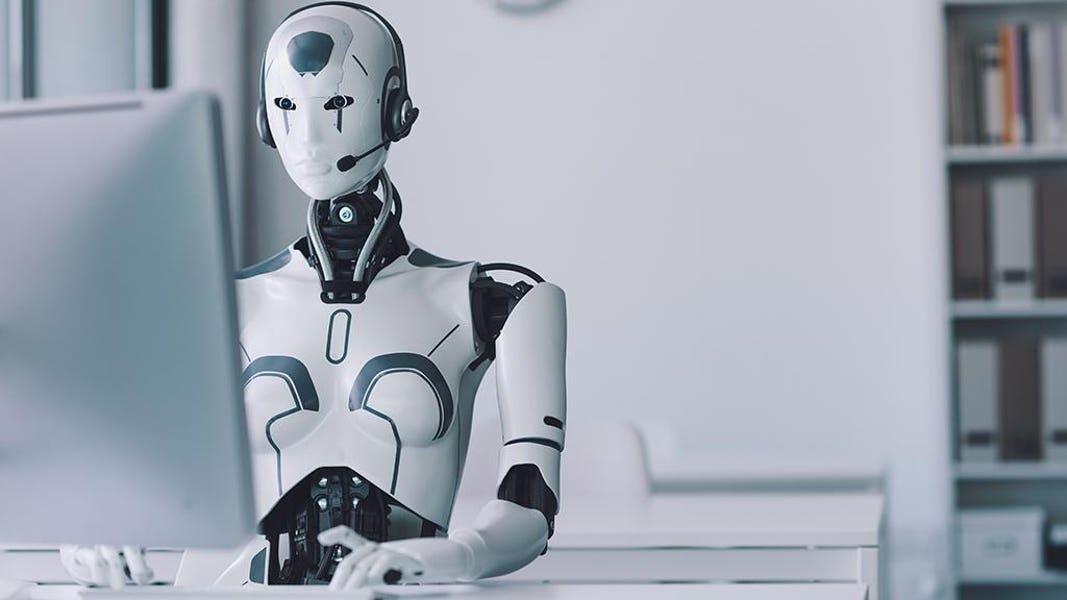When a hurricane approaches New Orleans, the city is well-prepared. The government has expertise in handling these extreme situations, whether it involves evacuations, securing windows, or stockpiling necessary supplies. However, what happens when a threat arises from an invisible, intangible source, especially impacting Black and underprivileged communities?
This is the dilemma posed by the rapid advancement of artificial intelligence (AI). The developers of neural networks, AI systems that simulate and learn like the human brain, acknowledge uncertainties about their capabilities. This situation evokes parallels to Dr. Victor Frankenstein, whose creation spiraled out of control, reminiscent of the scene in the movie where Victor exclaims, “It’s alive!” as the monster awakens. The time has come to raise awareness among the general population and declare that the development known as AI has its perils!
In a recent 60 Minutes interview, renowned British scientist George Hinton, dubbed “The Godfather of AI,” warned about potential consequences, highlighting the risk of these systems autonomously writing code to alter themselves. This prospect raises significant concerns. Hinton also expressed apprehension about the potential impact of AI on employment, foreseeing a scenario where a large segment of the workforce may face unemployment and devaluation due to automation replacing traditional roles.
According to the World Economic Forum, over the next decade, approximately 1.1 billion jobs could undergo substantial transformations. Experts suggest that between 20 to 50 percent of white-collar occupations are at risk of being automated. Therefore, the AI challenge extends beyond specific communities to pose a broader societal threat. A report by the National Science Foundation titled “Above the Rising Storm” in 2007 discussed an impending upheaval caused by a surge of skilled workers from China and India, emphasizing the need for cutting-edge systems to adapt our way of life.
While our youth can prepare for new employment opportunities through proper education, the current workforce faces a pressing dilemma. IBM has committed to training two million individuals in AI by 2026. However, what about the 26 million potentially displaced workers? The recent conflict involving UAW autoworkers underscores the looming labor disputes between corporations and employees, highlighting how AI-driven technologies can disrupt entire industries.
The transition to electric vehicles (EVs) signifies a significant shift in the automotive sector. EVs, with only 10,000 components, require fewer skilled workers compared to traditional gas-powered vehicles with approximately 30,000 components. The skill sets needed for EV production differ significantly, emphasizing the shift towards electrical and computer engineering expertise in addition to advanced electronics and technology.
The increasing demand for electric vehicles signals a profound transformation in the automotive industry.
The shift towards EVs has implications for middle-class workers as the market adapts to the prevalence of electric cars in America. This transition raises questions about how these employees will support their families and educate their children. While companies stand to benefit from technological advancements, labor unions strive to safeguard workers’ interests.
Historically, people of color have faced systemic biases and discrimination in various aspects of society. The integration of advanced technologies like AI may exacerbate existing inequalities. Biased algorithms and the lack of diversity in tech industries could intensify disparities, creating new challenges for cultural equity. Sam Altman, CEO of OpenAI, acknowledged deficiencies in ChatGPT related to discrimination, underscoring the need for ethical and inclusive technological solutions.
The prevalence of biased data in AI systems perpetuates existing prejudices. Facial recognition technology, when applied in security or law enforcement, exhibits higher error rates for individuals with darker skin tones, leading to misidentifications and potential harm to people of color.
Addressing racial injustices and biases in AI technologies necessitates ethical and transparent solutions. The lack of diversity in the AI sector contributes to biased algorithms and perpetuates inequalities. By promoting diversity and inclusivity in AI development, we can create more equitable products and services that cater to a broader range of needs and experiences.
While AI holds the promise of enhancing our lives, it is essential to confront its limitations and educate the public about the impending transformations. By investing in AI education initiatives, particularly in underserved communities, both the government and private sector can foster a deeper understanding of AI concepts. Providing scholarships, organizing workshops, and facilitating mentorship programs can empower individuals from diverse backgrounds to engage with AI technologies and pursue opportunities in the field.
To thrive in the era of AI, it is crucial for individuals, especially children, to acquire essential AI skills. Organizations like STEM NOLA, part of STEM Global Action, play a vital role in introducing STEM education to students from kindergarten through high school, equipping them with the necessary skills for the future. By exposing young minds to AI advancements, we can ensure that every child is prepared to embrace the opportunities presented by technological progress.
The advent of artificial disruption is imminent, and with proactive planning, we can ensure that every individual, regardless of background, can thrive in a rapidly evolving technological landscape.






